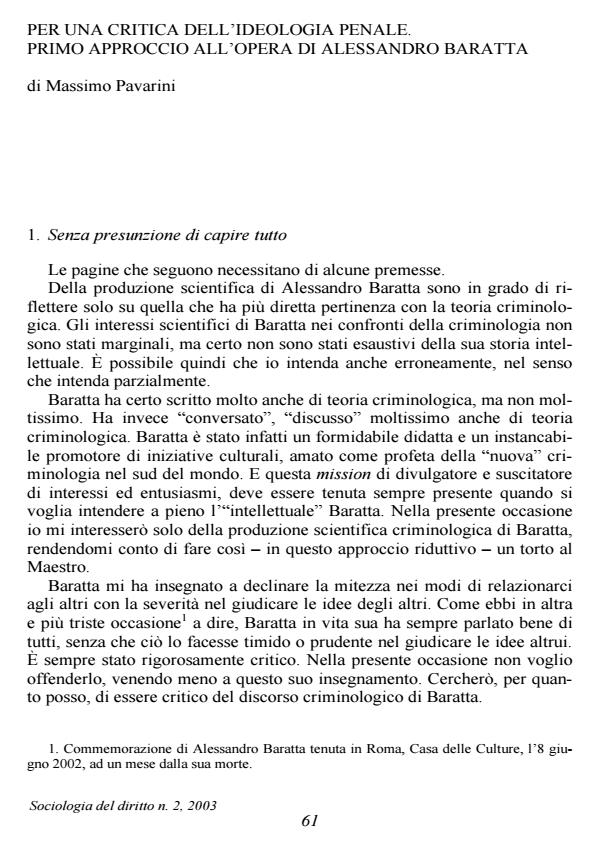Per una critica dell'ideologia penale. Primo approccio all'opera di Alessandro Baratta
Journal title SOCIOLOGIA DEL DIRITTO
Author/s Massimo Pavarini
Publishing Year 2004 Issue 2003/2
Language Italian Pages 21 P. File size 166 KB
DOI
DOI is like a bar code for intellectual property: to have more infomation
click here
Below, you can see the article first page
If you want to buy this article in PDF format, you can do it, following the instructions to buy download credits

FrancoAngeli is member of Publishers International Linking Association, Inc (PILA), a not-for-profit association which run the CrossRef service enabling links to and from online scholarly content.
This article is a first and, so far, still incomplete attempt at making a critical examination of Alessandro Baratta’s scientific and intellectual career. Stretching over some 30 years, this career began with philosophical studies and achieved intellectual maturity with a profound knowledge of criminological issues. Baratta never became a traditional criminologist, nor a penal law authority. That is because he developed his own innovative model of critical philosophy, which he intended to appraise the juristic and criminological debate. Baratta considered that he was offering methodological hints for tackling the criminal question. As far as the behavioural dimension is concerned, he suggested that the material or objective benchmark should be provided by the primary concept of the social harm that might potentially be caused to the interests of the most disadvantaged. From a political viewpoint, his approach reveals a clear distance from Marxist orthodoxy. Furthermore, it highlights Baratta’s underlying scepticism towards criminal issues. In his view, taking into account both the facet of the harm caused by criminal behaviour and that of the damage brought about by retributive reactions, criminal issues are related intimately to inequality among social actors. While progressive politics has a duty to do away with material inequalities, a critical science has a duty to offer alternative solutions to the system based on penalisation. In particular, in a framework of permanent historical inequalities, it should identify less expensive solutions for those people who always end up paying the costs of crime and of social reactions to it.
Massimo Pavarini, Per una critica dell'ideologia penale. Primo approccio all'opera di Alessandro Baratta in "SOCIOLOGIA DEL DIRITTO " 2/2003, pp , DOI: